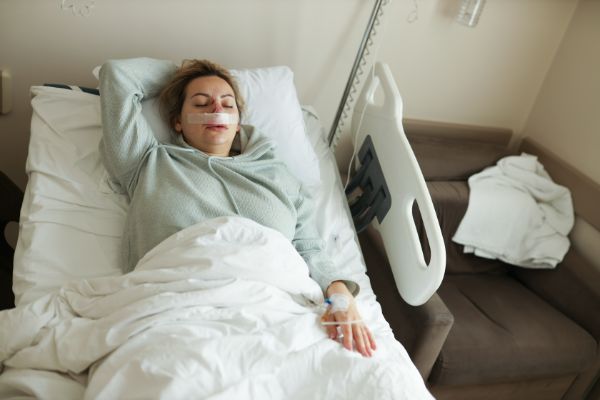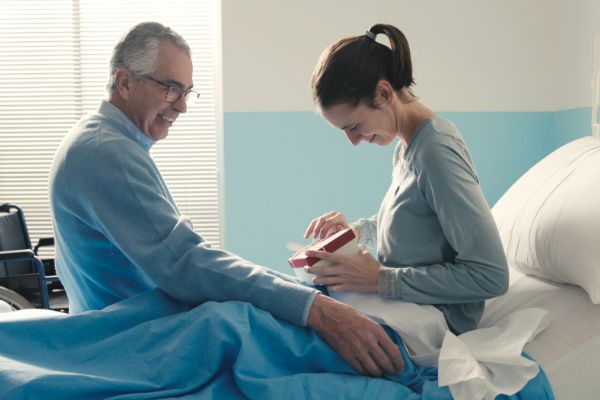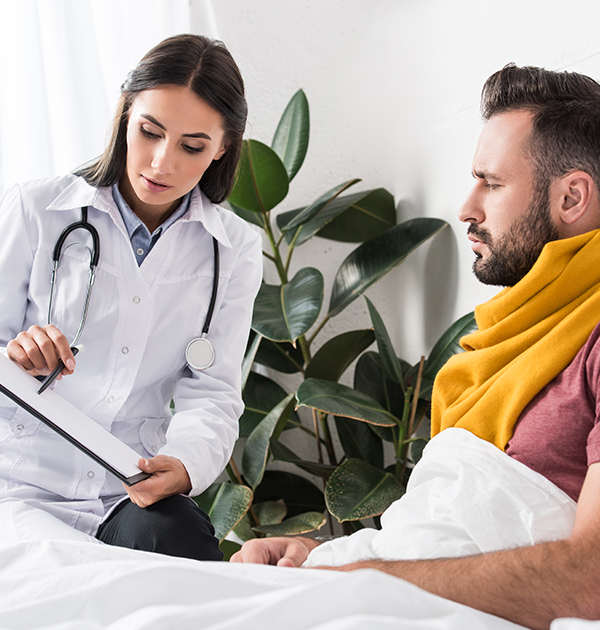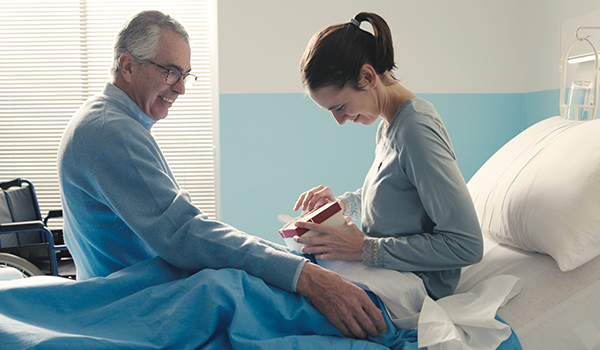

Common Post-Surgery Symptoms & How to Handle Them
Cosmetic surgery can be a transformative experience, enhancing patients’ appearance and confidence. However, it’s important to be prepared for recovery, which often involves managing various common post-surgery symptoms. From nausea and swelling to more serious complications like infections and blood clots, understanding these potential issues and knowing how to address them is crucial for a smooth recovery. Let’s delve right into the discomforts and how you can combat them!
Common Post-Operative Discomforts
Due to the effects of general anesthesia, nausea, and vomiting are common after cosmetic procedures. Patients may also have a sore throat from the breathing tube used during surgery. Additionally, soreness, pain, and swelling around the incision site or minor discomfort around IV sites are typical. Other frequent symptoms include restlessness, sleeplessness, thirst, constipation, and gas. Learn more about caring for surgery incisions here.
Fatigue is also a common post-surgery complication, often resulting from the stress of anesthesia and the procedure itself. Fluctuations in blood pressure can also be a concern, as both high and low blood pressure can lead to further complications and should be monitored closely.


Potential Complications After Cosmetic Surgery
Certain complications can occur after a cosmetic surgery, they include:
Bleeding & Hemorrhage
Rapid blood loss from the surgical site can lead to shock, making it a serious concern. It can also significantly reduce blood flow, leading to the formation of blood clots and further complicating the recovery process.
Treatment may involve administering IV fluids, blood transfusions, and additional procedures to control the bleeding. Such blood loss can be a medical emergency, necessitating immediate attention from a healthcare provider.
Surgical Site Infections & Sepsis
Wound infections can delay the healing process and may spread to nearby tissues or even distant areas through the bloodstream. Treatment typically involves antibiotics and procedures to clean or drain the infected area. Surgical site infections are serious complications that require prompt treatment from a healthcare team to prevent further issues.
Blood Clots & Deep Vein Thrombosis
After cosmetic surgery, deep vein thrombosis, a blood clot in a large vein, is a risk. Symptoms include pain, swelling, tenderness, and skin redness, often in a leg, arm, or other area. Treatment usually involves blood thinners to prevent the clot from growing and causing a pulmonary embolism, a potentially life-threatening condition.


Respiratory Problems
Lung problems can occur if deep breathing and coughing exercises are not performed after surgery, due to pneumonia, or when substances are inhaled into the airways. Taking deep breaths and using an incentive spirometer can help prevent complications such as lung collapse or pneumonia, which can arise due to the effects of anesthesia on standard breathing patterns.
Symptoms might include wheezing, chest pain, shortness of breath, fever, and cough. Treatment varies based on the specific lung issue and its cause and may include oxygen therapy, antibiotics, or other medications. Read more on not running your results here.
Managing Pain & Discomfort
Pain is a common complaint among cosmetic surgery patients in the days and sometimes weeks following the procedure. It can be managed with medications, such as over-the-counter options like Tylenol (acetaminophen), Advil (ibuprofen), or prescription pain medications. Effective pain control is a priority for both patients and doctors after surgery, as it helps reduce the risk of common complications like pneumonia and blood clots. Moreover, seeing a doctor at a reputed facility such as Jim Brantner MD increases your chances of having a smooth recovery process.
Wound Care & Scarring
Proper wound care in the weeks following cosmetic surgery significantly impacts how the incision scars. Avoiding smoking, keeping the wound clean, maintaining a healthy diet, and appropriately using medication all contribute to effective healing and minimal scarring. Wound dehiscence, where the incision site opens during the healing process, is a serious complication.


Urinary Retention Problems
Urinary retention, the inability to empty the bladder, can occur after cosmetic procedures. It may be caused by anesthesia or the surgery itself and is often treated by using a thin tube (catheter) to drain the bladder. Having a urinary catheter placed for surgery often results in urinary tract infections, similar to urinary retention.
Preventing Complications
Preventing infection is crucial after cosmetic surgery. Antibiotics are often prescribed post-surgery, even if no signs or symptoms of infection are present. Early identification of infection signs and symptoms can lead to a faster recovery. Risk factors for complications, such as deep vein thrombosis, include immobility, smoking, and certain medical conditions.
When to Seek Medical Attention?
It’s important to seek medical attention immediately if you experience severe chest pain, difficulty breathing, or severe bleeding. A fever over 101.5°F (38.6°C), chills, or increased redness or swelling around the incision site also warrant medical attention. Additionally, difficulty urinating, severe pain, or increased risk of
Frequently Asked Questions
Q: What are common symptoms after cosmetic surgery?
A: Common symptoms post-cosmetic surgery include nausea, vomiting, sore throat, soreness, pain, swelling, restlessness, sleeplessness, thirst, constipation, gas, and fatigue.
Q: How can I manage pain after cosmetic surgery?
A: Pain can be managed with over-the-counter medications like Tylenol, Advil, or prescription pain medications. Effective pain control is crucial to reduce the risk of complications like pneumonia and blood clots.
Q: What should I do if I suspect an infection after surgery?
A: If you suspect an infection, seek medical attention immediately. Signs of infection include fever over 101.5°F, chills, or increased redness or swelling around the incision site.
Q: What are potential complications after cosmetic surgery?
A: Potential complications include bleeding and hemorrhage, infection and sepsis, blood clots and deep vein thrombosis, respiratory problems, wound dehiscence, and urinary retention.

Call Jim Brantner M.D. for Expert Cosmetic Procedures
At Jim Brantner, M.D, we offer quality cosmetic surgery services personalized to your unique needs. Whether you’re considering a facelift to rejuvenate your appearance, a tummy tuck to improve your abdominal contour, or breast augmentation for a more balanced silhouette, our experienced healthcare team is here to guide you through every step of your transformation.
Our patient care and safety commitment make sure that you always receive the best possible outcome. Contact us today to schedule your consultation and take the first step toward achieving your aesthetic goals.
What Our Paients Are Saying About Us..

I had BR surgery 2months ago, I had the anchor procedure. I had absolutely no problems at all, no pain, very little swelling and the results are amazing, with the added bonus that my back , neck, and shoulders no longer hurt. Even at just 2months my scars are hardly noticeable. I would recommend Dr Brantner to anyone , he and his staff are wonderful . I could not have had a better experience.

I highly recommend Dr. Brantner to any woman that wants a breast augmentation. I'm very pleased with my results. they look amazing and feel wonderful. If I ever need anything done in the future, I will sure be back to see Dr. Brantner. Thank you so much for taking good care of me!

Dr. Brantner and his associates are all amazing! They are very kind, smart, and honest people I highly recommend Dr. Brantner. They took great care of me and my needs from start to finish.

friendly and he takes time to answer any questions I may have and was even so kind as to take a phone call from me and he alleviated all concerns in a kind, gentle manner. Dr. Brantner and his staff were absolutely fantastic!!!!!! They made me feel soooooo comfortable before and after surgery. I highly recommend him to anyone looking to have a breast reduction.

Dr. Brantner is a highly skilled surgeon. I am so happy that I decided to go to him. After being in a car accident my nasal bones and surrounding bones had to be reconstructed. The first surgeon who worked on me did a terrible job and had zero bedside manner. That is when I sought out Dr. Branner, he not only did an amazing job fixing everything the first Doctor messed up, he also made it look better than it did originally. I would highly recommend him to anyone.
testimonials
I went to Dr Brantner for reconstruction revision. I'm very, very pleased with the results. The staff were wonderful. I can't thank them enough for taking care of my surgery and making me feel and look so much better!!! I would highly recommend Dr Brantner.
Great surgeon! Every employee in the office is wonderful and helpful. I have nothing but great things to say about Dr Brantner, Win, and all of the staff.
Talk to us



